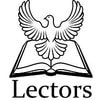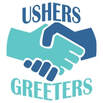what to place here?
|
Liturgy literally means "the work of the people." Worship in the Episcopal church is liturgy, and it requires the whole congregation working together to make it holy, joyous, and beautiful. On the one hand, every participant who participates in the movement, actions, and prayers of the worship service is working in worship - and there is a lot of movement and a lot of praying.
|
There are also a great many who have particular and significant roles in the production of the Episcopal liturgy. Look of the list and explanations below. First, learn and explore who the various ministers are that you might see on Sunday. Then, through prayer, discernment, and talking with others, discover how you might want to participate and in which ministry you might best fit.
All may participate - some will - none must - but all may!
We will find a place for you. Adequate training will be provided. You can sign up below.
All may participate - some will - none must - but all may!
We will find a place for you. Adequate training will be provided. You can sign up below.

Acolytes
Acolytes light candles and deliver objects used in worship to other ministers, they carry torches (torch-bearer) and crosses (crucifer) in processions, and they assist the priest at the altar in the preparation for Holy Communion. Acolytes sit in the Sanctuary. While traditionally Acolytes have been children or youth, adults are welcome. Children should be old enough to maintain composure during the service.
Acolytes light candles and deliver objects used in worship to other ministers, they carry torches (torch-bearer) and crosses (crucifer) in processions, and they assist the priest at the altar in the preparation for Holy Communion. Acolytes sit in the Sanctuary. While traditionally Acolytes have been children or youth, adults are welcome. Children should be old enough to maintain composure during the service.

Altar Guild
The Altar Guild maintains and prepares the ceremonial and practical objects, paraments, and decorations for liturgy. They generally do not work during the actual service; but, rather, they conduct their work before and after the service as well as during the week (sometimes). All responsible adults, youth, and children are invited to participate.
The Altar Guild maintains and prepares the ceremonial and practical objects, paraments, and decorations for liturgy. They generally do not work during the actual service; but, rather, they conduct their work before and after the service as well as during the week (sometimes). All responsible adults, youth, and children are invited to participate.

Lay Eucharistic Ministers
Lay Eucharistic Ministers (LEMs) assist the clergy at the altar and with the preparation and distribution of Holy Communion. They sit in the Sanctuary. LEMs are licensed by the Diocese of Central Florida and must be confirmed, communicants in good standing.
Lay Eucharistic Ministers (LEMs) assist the clergy at the altar and with the preparation and distribution of Holy Communion. They sit in the Sanctuary. LEMs are licensed by the Diocese of Central Florida and must be confirmed, communicants in good standing.

Lectors (Readers)
Lectors proclaim the Word of God (Old Testament and Epistles), they lead the responsive Psalm, and read the Prayers of the People. They sit anywhere in the congregation and come forward when it is their turn to read. Adults, youth, and children - all who are able to read confidently and audibly - are invited to be Lectors.
Lectors proclaim the Word of God (Old Testament and Epistles), they lead the responsive Psalm, and read the Prayers of the People. They sit anywhere in the congregation and come forward when it is their turn to read. Adults, youth, and children - all who are able to read confidently and audibly - are invited to be Lectors.

Music (Choir, Praise Team, Musicians, etc.)
The music team leads congregational singing during Sunday services and on certain holy days during the year (Christmas, Holy Thursday, etc.). All are welcome! Participants should have a love of singing and some level of ability to sing with a live musician (piano, keyboard) and follow streamed music. The music team is active through the whole service and sits in the Sanctuary (on the "music side").
The music team leads congregational singing during Sunday services and on certain holy days during the year (Christmas, Holy Thursday, etc.). All are welcome! Participants should have a love of singing and some level of ability to sing with a live musician (piano, keyboard) and follow streamed music. The music team is active through the whole service and sits in the Sanctuary (on the "music side").

Tech Services
Tech Services handles the audio-visual needs, including projection of the service, live-streaming, and monitoring microphones/speakers for celebrant and musicians. Members can be trained but should come with basic computer (PC) skills and they must be able to pay attention for an entire service. Tech Services sits in the sound room at the rear of the church.
Tech Services handles the audio-visual needs, including projection of the service, live-streaming, and monitoring microphones/speakers for celebrant and musicians. Members can be trained but should come with basic computer (PC) skills and they must be able to pay attention for an entire service. Tech Services sits in the sound room at the rear of the church.

Ushers/Greeters & Security
Greeters welcome everyone to service and hand out bulletins/newsletters; they introduce newcomers to church life; and, they generally make people comfortable as they arrive for service. They also assist during the service with the collection and with the distribution of communion. One person is also assigned to security. Ushers sit in the rear of church, prepared for needs that might arise.
Greeters welcome everyone to service and hand out bulletins/newsletters; they introduce newcomers to church life; and, they generally make people comfortable as they arrive for service. They also assist during the service with the collection and with the distribution of communion. One person is also assigned to security. Ushers sit in the rear of church, prepared for needs that might arise.
|

